There may be an issue with your anti-lock brake system (ABS) that is causing it to engage unexpectedly. Some common reasons for this include a faulty ABS control module, a problem with the ABS sensors, or a malfunction in the brake system itself.
Other potential causes could include the following:
- A loss of hydraulic pressure in the brake system.
- A low level of brake fluid.
- A problem with the brake lines or hoses.
While a non-expert can diagnose some issues with a vehicle’s anti-lock brake system (ABS), it is generally best to have a certified mechanic handle the diagnosis and repair of any problems with your vehicle’s brakes.
This is because the ABS is a complex system that requires specialized knowledge and tools to diagnose and repair properly. Attempting to diagnose and repair the issue could worsen the problem or cause additional damage to your vehicle.
Additionally, even if you can determine the cause of the issue, you will likely not have the necessary tools or expertise to fix it properly. Therefore, it is generally best to leave the diagnosis and repair of your vehicle’s brakes to a professional.
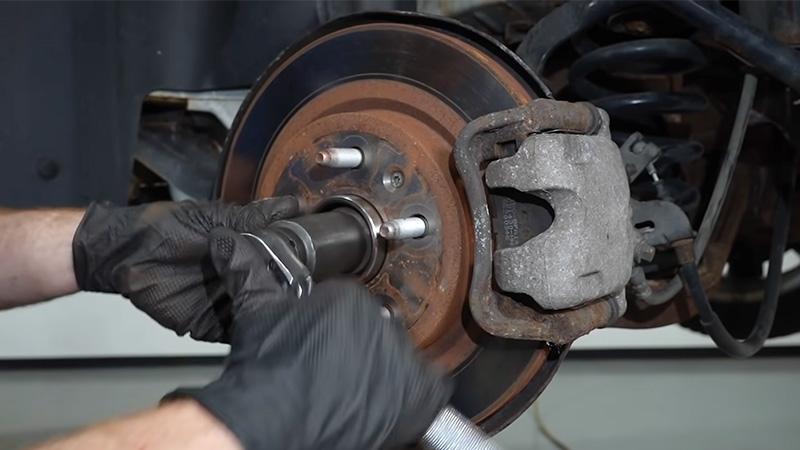
Contents
Why Do My Brakes Feel Like ABS Is Kicking In?
If you feel like your brakes are pulsing or vibrating, your car’s ABS may be kicking in. ABS, or anti-lock brake system, is a safety feature that helps prevent the wheels from locking up when you brake hard.
When the ABS is activated, you may feel a pulsing sensation through the brake pedal. This is normal and intended to help you maintain vehicle control.
If your ABS is kicking in unexpectedly or when you shouldn’t need it, it could be a sign of a problem with the system. Let’s take a deeper look at this situation.
What Will I Feel When The ABS Engages?
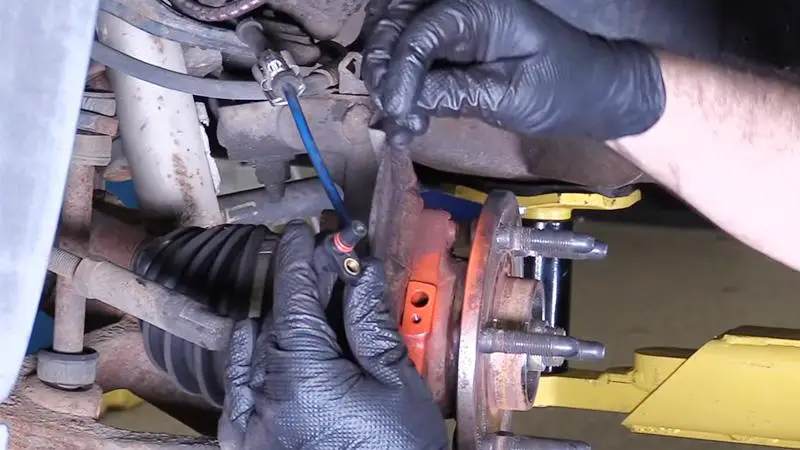
When the ABS pump and valve assembly operate, you will feel the brake pedal pumping and hear a grinding, mechanical noise as the ABS metering pressure is applied to the affected wheel(s).
Tires may make a screeching sound when they skid for very short periods. During regular ABS operations, there will be no warning lights.
Why Do My Anti-Lock Brakes Keep Engaging?
A weak signal on dry pavement from the ABS speed sensor usually causes low-speed ABS activation. As wheel speed decreases, the strength (amplitude) of the signal generated by an ABS sensor should gradually decline.
The ABS controller responds to a drop in signal if it interprets this as abnormal deceleration and initiates braking. When a vehicle is approaching a halt at about 5 mph, this typically happens just before it stops.
Speed sensors with weak signals may be caused by corrosion around the sensor or metal particles built up at the sensor tip.
An ABS activation complaint may be caused by anything that separates the sensor from the generator. Corrosion may cause an unwanted ABS activation when the brakes are applied at a speed greater than 3.7mph but less than 10mph.
What If My ABS Engages When It Shouldn’t?
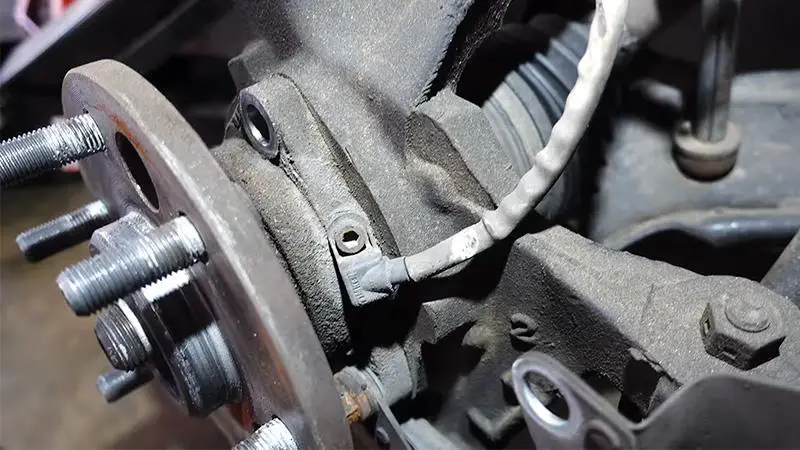
There is a possibility that the ABS engages when it should not. A faulty wheel speed sensor is the most common cause of this problem. Wheel speed sensors may read 0 MPH incorrectly while braking, resulting in the system engaging and storing no fault codes.
Road testing your vehicle with a qualified technician may be your best option if you suspect your ABS engages when it should not.
Peculiarities of ABS
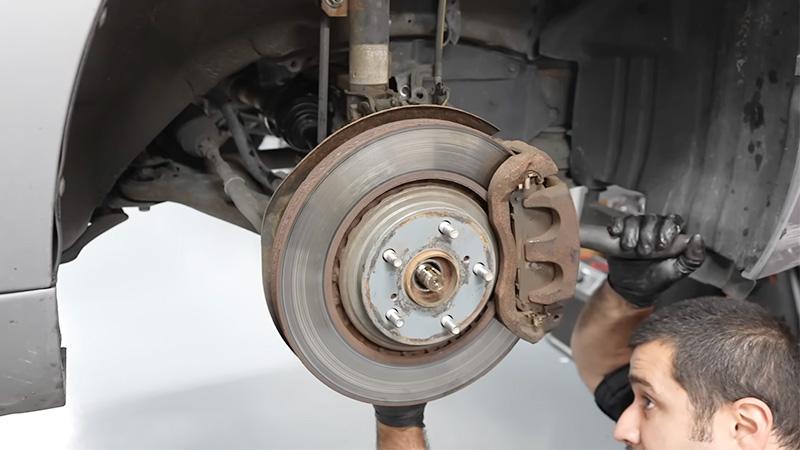
Before a panic situation arises, technicians recommend that owners get accustomed to their ABS system. It can be helpful to find a safe open area, such as a deserted parking lot.
As you apply the brakes to about 30 MPH, note what happens when the ABS engages, just as you would in a panic situation. Knowing what to expect when the ABS engages if the system engages unexpectedly can be beneficial.
A loose gravel road, powdery snow, and other conditions would be better off without ABS. If a wheel is skidding in loose material, gravel or snow accumulates in front of the tire as the wheel skids, which slows the vehicle.
To decrease braking distance, the ABS keeps the wheels turning to prevent build-up in front of the tires. The driver can’t turn the ABS on and off.
The best response to a skid in these conditions would be to hold firm on the brake pedal or increase pressure on the brake pedal as described above. It is important to keep in mind that driving in these types of conditions will result in longer stopping distances.
Reasons Your Anti-Lock Brake System Light Can Come On
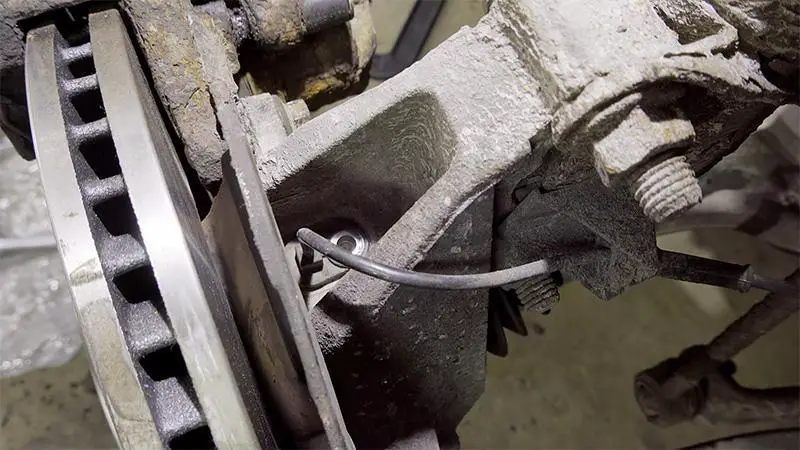
If your ABS light is on, it may have gone wrong with your system, so you should check it.
A malfunctioning ABS module, low fluid levels in the reservoir, broken wheel speed sensors, or an entirely off system are four of the most common reasons for this light to illuminate.
Malfunctioning ABS Module
Your ABS’s traction control system shares some crucial components with your ABS. All four wheels on the ground should roll smoothly when the traction control system is engaged.
It will cut off power from your engine if it detects that one wheel is spinning irregularly until it establishes stable traction again. The purpose is to prevent you from accidentally applying too much power and skidding out of control.
It is possible, however, for ABS and traction control to interfere with one another because they both share a control module and a self-diagnostic system.
Your ABS light may come on if you have an issue with your traction control, but it may also come on if your ABS system is having trouble. You must have it professionally diagnosed to determine exactly what’s wrong with your vehicle.
Your System is Turned Off
You may be surprised that you can activate or deactivate your traction control or ABS. You will be notified when this important safety feature doesn’t work when you turn off the system by an indicator light on your dashboard.
There is a good chance that you may have accidentally turned off your traction control or ABS system if just your traction control or ABS light is on. Consult your owner’s manual if you aren’t sure where the switch is or if you accidentally bumped it.
Broken Wheel Speed Sensors
You can measure the rotation speed of each wheel independently using wheel speed sensors. The computer adjusts or shifts power to different wheels if it detects an anomaly in these speeds.
This information can’t be relayed accurately if the speed sensor is dirty or stops working. Instead of making many adjustments, it usually disables your ABS and/or traction control systems until your vehicle is restarted or the problem is resolved.
Low Levels in the Fluid Reservoir
Brake pads close when a cylinder presses against a fluid, which means that your car comes to a stop when your brakes are applied. It is, therefore, important to keep your brake system’s fluid level consistent and constant.
Fluid levels will drop if there is a slow leak or the fluid evaporates, resulting in your brakes not working correctly. In most cases, your computer can detect this with sensors and will turn on the ABS light.
What Should You Do If Your ABS Warning Light Stays On?
An actual question from the car theory test appears here. If your ABS warning light stays on, you need to have your brakes checked immediately. This does not mean, however, that you should drive to a garage!
Cars with problems with their brakes may be unsafe to drive. It would be better to contact your garage instead. If they send someone out to you, you won’t have to drive because they can advise you on what to do next.
If your warning light continues to illuminate, you should also check your vehicle’s owner’s manual. As a result, you will be able to understand what exactly the light means and what steps you should take the next time you see it.
Never Ignore The Abs Warning Light
The ABS warning light on your car does not necessarily indicate that your brakes have stopped working. It may still be possible for you to drive your car as usual.
A final line of defense is the ABS, which provides a last line of defense in case of an emergency stop. If your ABS isn’t working, you might be skidding when you need to stop.
For this reason, you should never ignore your ABS warning light. Your travel plans should be canceled immediately if it remains on. Ensure you have addressed the problem and that your garage has given you the all-clear before you drive again.
Final Words
It turns out that an anti-lock brake system slows your car down more slowly than a traditional brake system and adds some distance to the car’s stopping distance. As a result, you can steer your car out of the path of an accident, preventing serious injuries.
It also increases the lifespan of your tires, brake pads, brake calipers, wheels, and most other parts of your car affected by braking.
